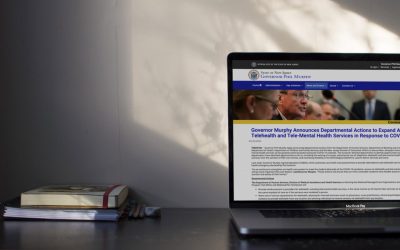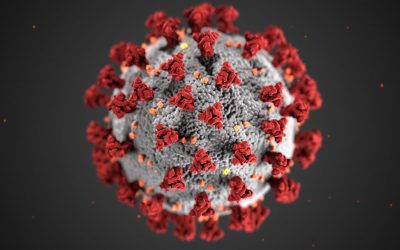CMS Issues Telehealth Encounter Guidance for Quality Reporting Programs
New telehealth encounter guidance is available for the Promoting Interoperability Programs and Quality Payment Program. There are 42 telehealth codes eligible for inclusion within the eligible professional/eligible clinician eCQMs for the 2020 performance period. For the 2021 performance period, 39 telehealth codes would be eligible, however, there are also additional eCQMs identified as not eligible for telehealth encounters.
Why Privacy & Consent Will Remain a Central Hurdle to Health Info Exchange Despite the Info Blocking Rule
Under the Privacy Exception, an Actor is permitted to not fulfill a request received to access, exchange, or use EHI to protect an individual’s privacy. The sub-exception for a “precondition-not-satisfied” will continue to put state laws governing privacy and consent at the center of decisions about whether EHI will be shared with third parties. Healthcare providers and HIEs/HINs especially will need to ensure that they have identified and analyzed each legal precondition to the release of EHI that is applicable to the particular type of entity and type of information that is implicated.
Is Your Organization Ready to Send Patient Information to Apps by November?
Becker’s Hospital Review reported that 70% of CIOs are “concerned” about meeting the upcoming November 2nd deadline for complying with the Final Rules prohibiting information blocking practices. This is according to a survey conducted by CHIME, which included responses from executives at academic medical centers, critical access hospitals, multi-hospital systems and specialty hospitals. Although the survey did not appear to identify specifically what concerns CIOs about complying with information blocking rules by this fall, one possibility is fully understanding how ONC’s information blocking rules will apply to releasing patients’ EHI to third-party apps.
FDA issues COVID-19 Guidance for IRB Review of Expanded Access Requests; Updated Clinical Trial Conduct Considerations
The FDA has issued guidance for IRB review of...
WEBINAR: Learn Which HIPAA Policies to Revise for ONC’s New Information Blocking Rule, Plus More!
Join the NJ Chapter of HIMSS and Helen Oscislawski for this Webinar to get a lean and focused overview of what you need to do to comply with ONC’s and CMS’s final rules implementing the 21st Century Cures Act. On April 24, 2020, the OIG also released its Proposed Rule on CMPs to be imposed against Actors who engage in prohibited “Information Blocking.” These new rules turn on their heads certain HIPAA policies and procedures.
New HHS Guidance on Laboratory COVID-19 Data Reporting Recognizes Valuable Role of HIEs
Late last week, HHS published new Guidance that specifies what additional data must be reported by laboratories along with COVID-19 test results. Reporting of certain data elements by laboratories are legally required, while reporting of other identifiable demographic data is encouraged but not mandatory. The Guidance notes that state and local privacy standards apply to the collection of identifiable demographic data. Importantly, HHS expressly supports health information exchanges (HIEs) being leveraged to facilitate required data collection and reporting.
Bill Aimed at Regulating COVID-19 Notification Apps Introduced in the Senate
The...
5 Reasons Why Your Training is Not Preventing HIPAA Violations by Employees
A State Court of Appeals recently reinstated a patient’s claim that an Indiana hospital is vicariously liable for the actions of its employee who shared the patient’s confidential information with an unauthorized third party. Although the lower court originally dismissed the case, the appellate court found that there is a “genuine issue of fact” and remanded the case for further proceedings. Now a potential monetary settlement teeters on the edge as the hospital’s potential liability for this employee’s HIPAA non-compliance rests in the hands of further proceedings in the lower court – so, you might want to ask why did this happen in the first place?
* HIPAA Training that is too basic and not focused on specific risk areas and organizational policies is not only non-compliant, but also largely ineffective.
* HIPAA covered entities should have clear policies and training that address specific employee behaviors that are “high risk” for HIPAA violations.
* Organizations must make sure they are training EVERYONE, and implementing effective Security Reminders.
“To Block, or Not to Block,” that is the question…
Deciding whether “to block, or not to block” health information based on an exception laid out in ONC’s Final Rule can quickly turn into a Shakespearean tragedy unless Actors understand in advance the specific criteria that must be met in order to satisfy any such applicable exception.
NJ Expands Access to Telehealth & Tele-Mental Health
Last night, the State of New Jersey announced...
HIPAA Relaxed during COVID-19 Pandemic
The events unfolding with respect to COVID-19...
HHS Publishes Ransomware Guidance
HHS Publishes Ransomware Guidance HHS has...
Moving Forward with Meaningful Use Stage 3 and MACRA
Moving Forward with Meaningful Use Stage 3 and...
Terms and Conditions May Apply: Consequences of Email-Provider Email Scanning
Terms and Conditions May Apply: Consequences of...
CMS Releases Guidance on Stage 2 Summary of Care Measure
CMS Releases Guidance on Stage 2 Summary of Care...
8 Things to Know about the Next Evolution of Meaningful Use
8 Things to Know about the Next Evolution of...
“Top 10” List for Security Law Compliance
“Top 10” List for Security Law Compliance As we...
CMS Extends Hospital Deadline for Meaningful Use Attestation
CMS Extends Hospital Deadline for Meaningful Use...
CMS Releases Final Meaningful Use CEHRT Extension Rule
CMS Releases Final Meaningful Use CEHRT...
SAMHSA Public Session to Discuss Part 2 Regulations & HIE
SAMHSA Public Session to Discuss Part 2...
Reminder: Public Comment Period Open for Meaningful Use NPRM
Reminder: Public Comment Period Open for...
Subscribe & Survive the onslaught of new healthcare regulations requiring updates to affected compliance programs.
Get access to exclusive subscription-only access to resources, tools, industry analysis and other valuable solutions.























